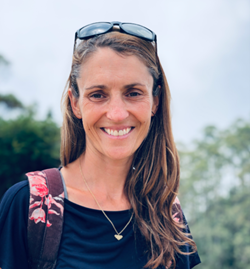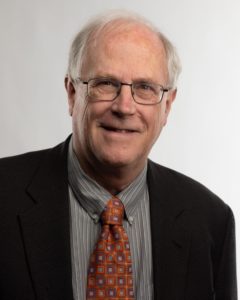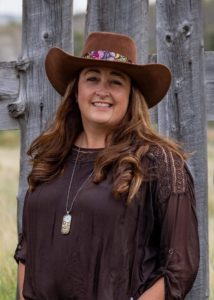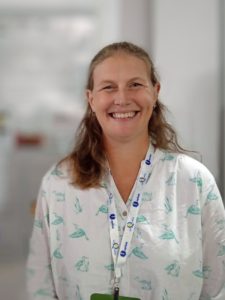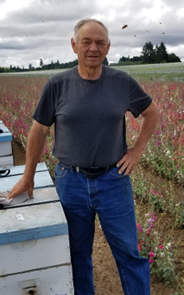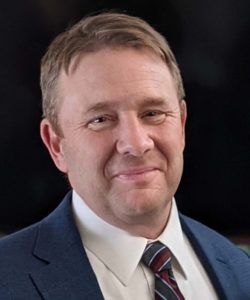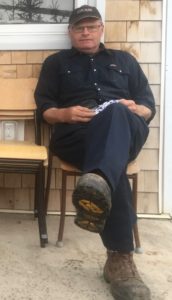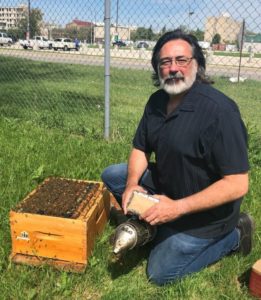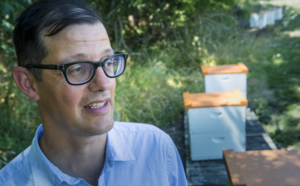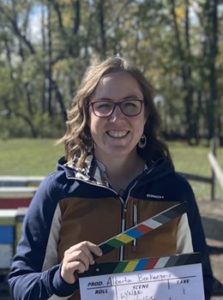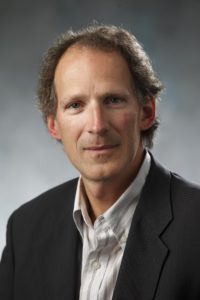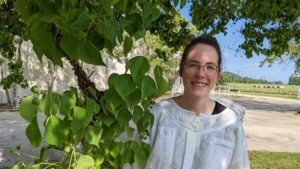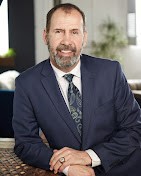BEE TECH – Presenters
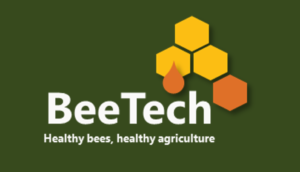 BEE TECH PRESENTERS
BEE TECH PRESENTERS
DR. MIRIAM BIXBY
Miriam received her PhD in environmental economics and interdisciplinary studies from the University of British Columbia in 2009. For the last 12 years, Miriam has worked on large scale bee projects with Dr. Foster’s honey bee research team out of UBC. Miriam has focused her research on the social and economic aspects of bringing effective, accessible and economically feasible new integrated pest management tools to the beekeeping industry. Miriam and her colleagues developed the Canadian Queen Bee breeding Reference Guide that is available on the CAPA and CHC websites for beekeepers and breeders. Miriam has recently published peer-reviewed papers on the economics of: Canadian queen bee production; ‘omic integrated pest management tools; the economic impact of COVID-19 on Canadian beekeeping; and the economics of Alberta and British Columbia beekeeping.
DR. ROB CURRIE
Rob Currie is a Professor and former Department Head in the Department of Entomology at the University of Manitoba. He teaches a wide range of courses in the Diploma, Degree and Graduate programs within the Faculty of Agricultural and Food Sciences. These courses have included, an online and in-person course on beekeeping, Pollination Biology, Pest Management and Farm Insects, Physiological Ecology of Insects, World of Bugs, Advanced Entomology and Advanced Pollination Biology.
His research interests focus on issues related to the biology and management of bees (honey bees, leafcutting bees and native pollinators) and the crops that they pollinate. A major focus of his research relates to how parasites, disease and other stressors such as nutrition interact to bee health and winter survival of honey bees.
MELODY GARNER-SKIBA
Melody Garner-Skiba has spent her life with one foot in agriculture and one foot in industry. She has held senior leadership roles in a variety of sectors including tourism, hospitality, non-profits, construction, social services, and agriculture. Melody calls Southern Alberta home as she operates “Rocking Heart Ranch” with her family down by Waterton. In addition to ranching, Melody provides consulting services to various industry players including the Alberta Sugar Beet Growers through her company “Garnering Results Consulting.” As the former Executive Director of ASBG, her passion for producing quality food in Canada, especially sugar beets, drives her advocacy for the sector. In 2023 she was awarded one of the AFSC Women in Agriculture Awards for her commitment to mentorship and advocacy.
MAGGIE GILL
Maggie Gill is the Regional Bee Inspector for Wales and has worked at the National Bee Unit for 10 years. The National Bee Unit organises the inspection programme of honey bee colonies in England and Wales for statutory notifiable diseases and pests.
Maggie is currently working on research into Tropilaelaps survival and transmission, the efficacy of miticides for Tropilaelaps detection and the monitoring of volatile organic compounds in honey bee colonies to detect sub-clinical disease, pest incursions and environmental contamination.
She has kept bees for almost 20 years and is also a small scale queen and nuc producer.
GEORGE HANSEN
After a short six years long career as a public-school teacher, George transformed a hobby beekeeping operation into a commercial endeavor. Starting from a few swarms and a collection of retrieved nuisance hives, the company now runs 7000 colonies in three states. Although the name Foothills Honey Company LLC never changed, the focus of the beekeeping is now primarily pollination service, with honey and wax making up no more than 30 percent of gross revenues. Many of these pollination sets put bees at risk. Concentrating on a succession of pollinations throughout the year has required the Foothills Honey Company to develop targeted management strategies to keep the hives in good pollinating condition from January to October. In the past few years, with the increased interest in beekeeping, sales of starter colonies have become an important part of the business as well. George and his wife Susan are currently transitioning their business to their sons Matt and Joe. George is an active member of the beekeeping community, promoting the industry’s interests as past president of the American Beekeeping Federation and formerly as a long- time producer representative on the National Honey Board. He hosts an annual Bee Day workshop and orientation at the Foothills Honey Company home site. Currently, George represents the ABF on the Honey Bee Health Coalition, participating on the steering committee as well as work groups tackling forage, nutrition, crop pest control and beekeeping management issues. He serves on the boards of the Bee Informed Partnership, Project Apis m, as well as the Bee and Butterfly Habitat Fund. George and Susan maintain an overlarge garden, both vegetable and landscape and enjoy developing and crafting theme spaces in the gardens. Both George and Susan have painting studios.
CHRIS HIATT
Chris was born into a beekeeping family in Ephrata, Washington in 1975. He and his five brothers grew up spending springs managing apple pollination in central Washington and summers pulling and extracting honey in North Dakota. Together they now own Hiatt Honey Co., started by their father 50 years ago. Chris splits his work year between Madera, California and Bowman, North Dakota running 20,000 hives. He also manages the business’s almond orchard in Madera.
Mr. Hiatt graduated from Brigham Young University in 1999 with a BA in Horticulture, minor in Business Management. Having served a two-year mission to Chile for the LDS church as a young adult, his fluency in Spanish has proved helpful in his business relations.
When he is not in the bee yard, Chris likes to ride his dirt bike, hike, and also go birding. He has seen close to 600 species of birds within the US and 1,000 in the world. Chris has also served as a leader within his local church and Boy Scouts. Chris and his wife, Heather, have four children: Holly (22), Kadee Jane (20), Ella (16) and Weston (13).
BOYD HICKS
Boyd Hicks, of Golden Acres Honey Farms Ltd. in southern New Brunswick, has been beekeeping for 45 years. He has developed a beekeeping style known for efficiency and attention to detail. (He would say, ‘lazy and simple’).
RHEAL LAFRENIERE
Rhéal retired from the Provincial Apiarist position in Manitoba in the fall of 2022 after nearly 27 years of service with the provincial government of Manitoba. Prior to working for the province of Manitoba, Rhéal had already been building up his knowledge and experience related to beekeeping by working for commercial beekeepers in Canada as well as in New Zealand. In addition to gaining practical work experience in beekeeping, Rheal also was able to experience the research side of beekeeping by working for the University of Manitoba with renowned apiculture researcher, Dr. Cam Jay. Prior to becoming the Provincial Apiarist in Manitoba, Rheal also got to experience the regulatory side of beekeeping as a bee inspector under the then Provincial Apiarist, Don Dixon. These experiences not only provided an excellent foundation for the various aspects of beekeeping, it also had a profound influence on his academic career. After completing a bachelor degree in Science, Rheal switched to Agriculture to get a second undergraduate degree in Agriculture as well as Masters in Entomology. Currently Rheal continues his love affair with honey bees and beekeeping as a hobby beekeeper, where he and his son Vincent run 15 honey bee colonies for honey production and nuc sales just outside of Winnipeg.
PHYLLIS MacCALLUM, Senior Program Manager AgriLMI
Manages all activities and initiatives related to the National Workforce Strategy and Agri Diversity program.
DR. ANDONY MELATHOPOULOS
Andony Melathopoulos is an Associate Professor in Pollinator Health Extension in the Department of Horticulture at Oregon State University, which was the first such position in the US. He also sit on the Steering Committee of the Oregon Bee Project, which coordinates pollinator health work across state agencies, leads the Oregon Bee Atlas and hosts a weekly podcast called PolliNation.
LYNAE OVINGE
Lynae Ovinge serves as the Alberta Beekeepers Commission Tech Transfer Program Lead during Dr. Renata Labuschagne’s maternity leave. She grew up on a mixed grain/cattle farm near Granum, Alberta, and spent her summers working on commercial beekeeping farms. Lynae worked as an Apiary Inspector for Alberta Agriculture and has a Master’s of Science studying Varroa mite management at the University of Alberta. She later spent 8 years studying honey bee health and canola pollination with Dr. Shelley Hoover, first for Alberta Agriculture at the Lethbridge Research Centre, and later at the University of Lethbridge. Lynae is married to Tanner Ovinge and they are proud parents of Quinn (5), and Beau (2). In her spare time, Lynae enjoys reading, camping, and watching curling, golf, and NFL football.
DR. JEFF PETTIS, Research Scientist and Consultant, Pettis and Associates LLC
Dr. Pettis is an Entomologist who specializes in Apiculture and honey bee health. As former research leader of the USDA-ARS Bee Research Laboratory in Beltsville, MD and now an independent consultant, Dr. Pettis has focused on improving colony health by limiting the impact of pests, diseases and pesticides on honey bees. His research areas include: IPM techniques to reduce the impacts of parasitic mites and disease, effects of pesticides, pathogens, and temperature on queen health and longevity, host-parasite relationships and bee behavior. Dr. Pettis is the current President of Apimondia, the International Federation of Beekeeper’s Associations and serves on several international committees including the World Organization for Animal Health (OIE) and with more than 35 years of research experience conducted in more than 15 countries; he is frequently interviewed by the media for his opinions on worldwide pollinator declines and honey bee health. Dr. Pettis received undergraduate and MS degrees in Entomology from the University of Georgia and his doctoral degree in Entomology from Texas A&M University in 1992. 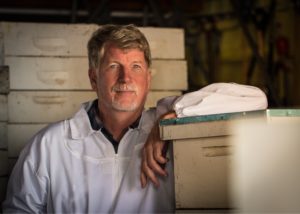
DR. CURTIS REMPEL, MBA PhD PAg – Vice President, Crop Production and Innovation, Canola Council of Canada
Dr. Rempel is responsible for directing the Crop Production and Innovation team Agronomy Specialists with a mandate to optimize yield and profitability for producers and the supply chains they serve while minimizing production risk and improving the environmental footprint; developing research priorities for canola production, oil and meal utilization; developing sustainability and production stewardship guidelines; liaising between producers, industry and academia to optimize knowledge and technology transfer; managing the budget and mandate for the Western Canada Canola/Rapeseed Recommending Committee; monitoring and managing issues related to domestic and global biotechnology, pesticide and fertilizer acceptance and regulation to support international trade; and representing Canadian canola’s interests with industry and professional groups. Dr. Rempel joined the Council in July 2012.
Dr. Rempel was raised on a farm specializing in dairy and special crops in Manitoba and continues farming. He holds a B.Sc. and M.Sc. from the University of Manitoba, a PhD from the University of Guelph, and an MBA from Athabasca University/University of Guelph. Prior to joining the Council, Dr. Rempel worked as a research scientist for Agriculture and Agri-food Canada; taught at numerous universities and community colleges; and operated his own consulting company for 10 years, primarily providing business and marketing strategy and scientific counsel to Fortune 500 companies. He worked for eight years in R&D, corporate finance and business strategy and development at Monsanto; as a senior consultant for Meyers, Norris, Penny focusing on commodity marketing, renewable energy, intellectual property protection, enterprise software applications, and scientific competitiveness; and Business Development Manager at Richardson Centre for Food Technology and Research, University of Manitoba. He is an Adjunct Professor in Dept. of Food and Human Nutrition Science, Faculty of Agriculture, University of Manitoba.
DR. LIZ WALSH
Dr. Liz Walsh is a Research Scientist with the USDA-ARS laboratory in Baton Rouge, Louisiana. She completed her postdoctoral fellowship with Dr. Steve Pernal, of Agriculture and Agri-Food Canada, at the Beaverlodge Research Farm in Alberta. Liz’s postdoc was spent exploring the links between honey bee health challenges and honey bee biomarkers as a part of the national BeeCSI project, but she also did work with AFB and chalkbrood exploring stock variation, asymptomatic vs. symptomatic infections, and more. This was all very different than her dissertation work, which was done at Texas A&M University with Dr. Juliana Rangel where Liz explored the impact of miticide exposure in immature queens. Liz is pleased to be well into her “teenage” years as a beekeeper, since she began keeping bees as a young high school student in her home state of Wisconsin, and is proud to serve the beekeeping industry through research initiatives. Liz is currently working on various projects which include examining: aggression due to environmental stressors in various honey bee stocks, drone reproductive health and biology, queen reproductive health after stressor exposure, and honey bee variation in responses to pathogens (chalkbrood and Nosema in particularly).
JAMIE MACOUN – Banquet Speaker
Jamie Macoun is a Canadian former professional ice hockey defenceman who played over 1,000 games in the National Hockey League (NHL) during a 17-year career. An undrafted player, Macoun played three seasons of college hockey with the men before signing with the Calgary Flames in 1983. Macoun was named to the NHL All-Rookie Team on defence in 1984 and, after missing 17 months due to injuries suffered in an automobile accident, was a member of Calgary’s 1989 Stanley Cup championship team. He was involved in one of the largest trades in NHL history, a ten-player deal that sent him to the Toronto Maple Leafs in 1992. He remained in Toronto until traded to the Detroit Red Wings in 1998, with whom he won his second Stanley Cup.
Internationally, Macoun played with Team Canada at three World Championships. He was a member of the silver medal-winning teams in 1985 and 1991, and was named the best defenceman of the 1991 tournament.
Return to BEE TECH – Canadian National Beekeeping Convention and Tradeshow – Canadian Honey Council
